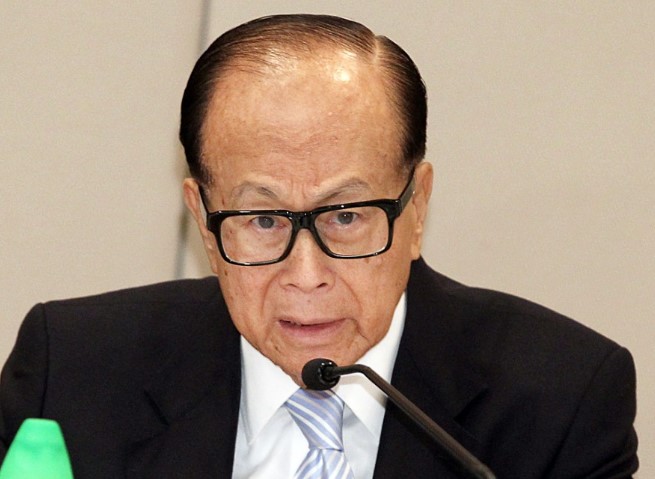China has issued a strong directive to its state-owned enterprises, ordering them to halt any new business deals with firms linked to Hong Kong billionaire Li Ka-shing and his family.
China Freezes New Deals With Li Ka-shing’s Companies
This move follows Li’s company, CK Hutchison, announcing the sale of two key ports in Panama to a group led by the U.S. investment firm BlackRock. The decision has put Li’s business empire in China under scrutiny, as Beijing views the deal as a threat to its national interests.
CK Hutchison, a global conglomerate owned by Li, operates businesses across multiple sectors, including telecommunications, retail, and port operations. Recently, the company agreed to sell a significant portion of its global port assets, including facilities near the strategically vital Panama Canal.
This deal, worth over $19 billion, has raised concerns within the Chinese government, which perceives the sale as benefiting the United States while weakening China’s influence over global trade routes.
According to Bloomberg News, senior Chinese officials instructed state-owned enterprises last week to pause any new agreements with companies linked to Li’s family. However, the directive does not impact existing business partnerships. In addition to this restriction, Chinese regulators are conducting a comprehensive review of Li Ka-shing’s investments within China and internationally. The purpose of this investigation is to understand the full extent of his family’s business dealings and their potential impact on China’s economic and strategic interests.
Backlash and Political Reactions in China
The deal has sparked significant criticism in China, especially from pro-Beijing media outlets. Ta Kung Pao, a Hong Kong-based newspaper known for supporting the Chinese government, has published a series of articles strongly opposing the sale. The commentaries argue that Li Ka-shing’s decision to sell the Panama ports to a U.S. firm is harmful to China and could be considered an act of betrayal. The articles suggest that by divesting key infrastructure assets, CK Hutchison is undermining China’s long-term economic interests.
Further escalating tensions, China’s Hong Kong and Macau Affairs Office reposted some of these critical commentaries on its official website. This action has fueled speculation that Beijing might take additional measures to interfere with or possibly block the sale. While no official statement has been made regarding direct intervention, the increasing scrutiny suggests that CK Hutchison’s decision is being closely monitored by Chinese authorities.
The political implications of the sale extend beyond China. In the United States, the transaction has been well received. Former U.S. President Donald Trump previously expressed concerns about Chinese influence over the Panama Canal. He had called for action to reduce China’s control over key trade routes. Following the announcement of CK Hutchison’s sale to BlackRock, Trump praised the deal, emphasizing that it aligns with U.S. interests by removing Chinese ownership from a strategic global shipping corridor.
China’s Regulatory Investigation and Market Impact
In response to CK Hutchison’s move, Chinese regulators have launched an in-depth investigation into the deal. Under the direct orders of central leadership, authorities are reviewing the sale to determine whether it conflicts with China’s economic and geopolitical strategies. This review highlights Beijing’s growing concerns about the role of foreign investment in strategic infrastructure projects previously controlled by Chinese-affiliated businesses.
Despite the political backlash, CK Hutchison’s stock market performance saw initial gains following the sale announcement. Shares of CK Hutchison Holdings rose as much as 3.6% at one point but later settled at a 1.2% increase by midday. Investors appear to be closely watching how China’s response to the deal will impact the company’s financial stability and future business operations.
The decision to halt new deals with Li Ka-shing’s firms marks a significant development in China’s approach to corporate transactions involving national security concerns. Although existing agreements remain unaffected, the restrictions send a clear signal that Beijing is willing to take action against companies perceived to be working against China’s strategic interests. The ongoing regulatory review also underscores the broader geopolitical tensions between China and the United States, particularly in the battle for control over global trade infrastructure.

